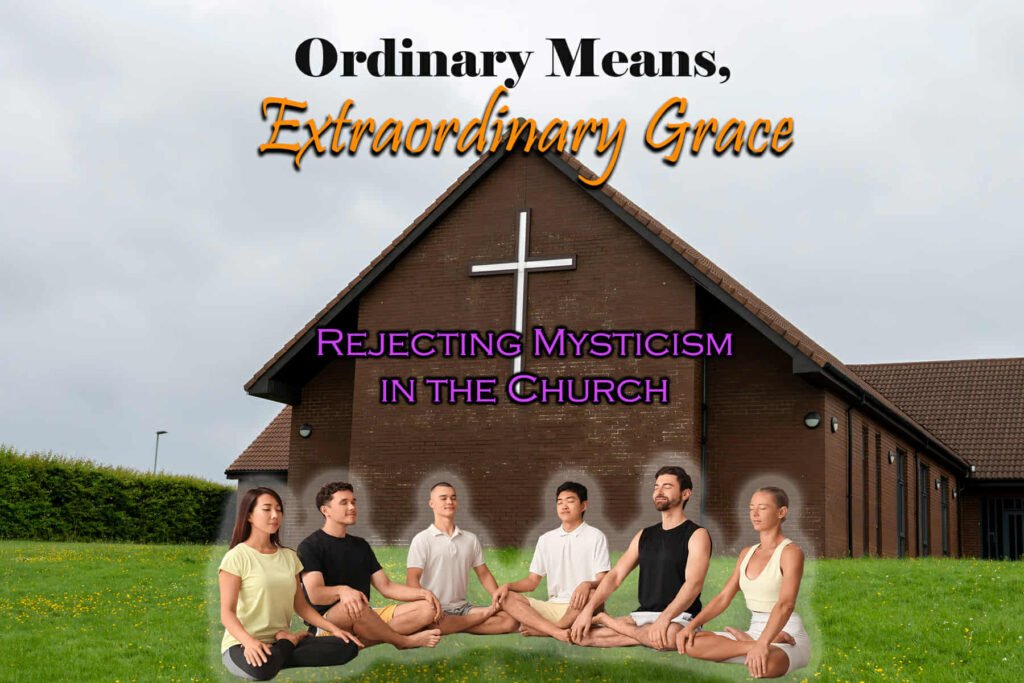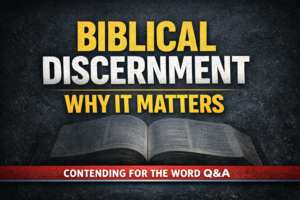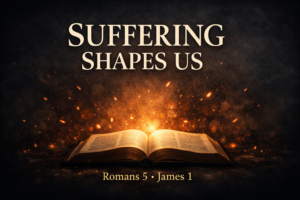⏱️ Estimated Reading Time: 6 min read
The Sacraments and the Means of Grace
From the earliest days of the Church, God has given His people ordinary means of grace: the Word, prayer, and the sacraments. These are not human inventions or optional extras. They are the divinely appointed channels through which the Lord strengthens faith, nourishes weary souls, and assures His children of His promises.
Among these means, baptism and the Lord’s Supper stand at the heart of the local church’s worship, as both visible and tangible signs of God’s covenant faithfulness. They remind us of Christ’s finished work and point us forward to the day when faith becomes sight.
The Means God Has Ordained
When we talk about “means of grace”, we are describing the ways God communicates His grace to His people. As the Westminster Shorter Catechism puts it, “The outward and ordinary means whereby Christ communicateth to us the benefits of redemption are, His ordinances, especially the Word, sacraments, and prayer” (Q. 88).
Notice the word ordinary. God often works through simple, regular means rather than flashy or dramatic ones: hearing the Word preached week by week; gathering at the Lord’s Table; witnessing a baptism. These might seem plain to the world, but they are powerful because God has tied His promises to them. He stoops to our weakness, giving us visible signs to confirm His invisible grace.
Baptism: Marked by Grace
Baptism is the sacrament of initiation into the Christian life. It is not a magical ritual, nor does it save apart from saving faith. Instead, baptism is a sign and seal of our union with Christ.
“Do you not know that all of us who have been baptized into Christ Jesus were baptized into his death? We were buried therefore with him by baptism into death, in order that, just as Christ was raised from the dead by the glory of the Father, we too might walk in newness of life”
(Romans 6:3–4)
In baptism, God visibly proclaims the truth that Believers have died with Christ, been cleansed by His blood, and been raised with Him to new life. Baptism therefore:
- Declares our union with Christ: We are identified with His death and resurrection.
- Marks our identity as God’s people: We belong to Him, not to ourselves.
- Incorporates us into the Church: Baptism publicly recognizes that we are part of Christ’s visible body.
Church history underscores this. The Early Church Fathers spoke of baptism as the sign of entrance into Christ’s covenant community. The Reformers clarified that baptism does not save, but it is a true means of grace, confirming to Believers the promises of the gospel. Every baptism we witness should remind us of God’s gracious initiative in salvation. We were dead in our trespasses, but God made us alive with Christ (Ephesians 2:5). Baptism points us back to His sufficient work, not our own.
The Lord’s Supper: Nourished by Grace
If baptism marks the beginning of the Christian life, the Lord’s Supper nourishes us along the way. On the night He was betrayed, Jesus took bread and wine and gave them to His disciples, saying, “This is my body, which is for you. Do this in remembrance of me” (1 Corinthians 11:24). The Supper is not an empty symbol. Paul calls the cup and bread “a participation in the blood of Christ” and “a participation in the body of Christ” (1 Corinthians 10:16). By faith, Believers commune with Christ Himself, receiving spiritual nourishment and grace. The Supper reminds us of three key realities:
- Remembrance — We proclaim Christ’s death until He comes again (1 Corinthians 11:26).
- Participation — We fellowship with Christ and with one another as His body.
- Anticipation — We look forward to the marriage supper of the Lamb (Revelation 19:9).
Throughout Church history, this has been a point of much debate. Yet the Reformers agreed on this: Christ is spiritually present in the Supper. We do not re-sacrifice Him, nor does the bread and wine change in substance. But Christ is truly present by His Spirit to strengthen faith, comfort weary hearts, and assure His people of His love.
This is why Paul warns us not to partake in an unworthy manner (1 Corinthians 11:27–29). The Supper calls us to examine ourselves, repent of sin, and renew our trust in Christ. Far from being a casual snack or ritual, it is a holy feast for the people of God.
Guarding Against Misuse
Because the sacraments are God’s appointed means of grace, they must not be distorted or misused. Baptism without faith is an empty washing. The Supper taken without repentance invites judgment. Both are gifts, but they require faith to be received rightly. Paul’s words to the church at Corinth remind us that the sacraments are not neutral. To take them lightly is to dishonor the Lord. Yet to receive them in faith is to enjoy the rich assurance that Christ is for us, with us, and in us.
Christ’s Presence Through His Appointed Means
What makes the sacraments powerful is not the water, bread, or wine themselves. It is the promise of God, applied by the Holy Spirit, that makes them means of grace. They are outward signs that point us inward and upward to Christ. Baptism assures us that we are washed and united to Christ. The Supper assures us that Christ died for us and continues to nourish us. In both, God stoops down to our level, giving us tangible reminders of His faithfulness.
Committed to the Means of Grace
The Christian life is not sustained by novelty or spiritual shortcuts, but by faithful commitment to God’s appointed means. The Word, prayer, baptism, and the Lord’s Supper are how God feeds and sustains His people until Christ returns. To neglect these is to neglect Christ Himself. But to embrace them in faith is to find Christ feeding, strengthening, and assuring us of His love. So let us be committed to hearing the Word preached, committed to prayer, committed to remembering our baptism, and committed to coming often and joyfully to the Lord’s Table. For in these ordinary means, God does extraordinary things.
This article appears in the Fall 2025 Issue of Theology for Life Magazine, exploring “The Means of Grace.”

Ordinary Means, Extraordinary Grace: Rejecting Mysticism in the Church
Dave Jenkins is happily married to his wife, Sarah, and lives in beautiful Southern Oregon. He is a writer, editor, and speaker who loves Christ, His people, the Church, and sound theology.
Dave serves as the Executive Director of Servants of Grace Ministries and the Executive Editor of Theology for Life Magazine. He is the Host and Producer of the Equipping You in Grace Podcast and a contributor to and producer of Contending for the Word.
He is the author of The Word Explored: The Problem of Biblical Illiteracy and What To Do About It (House to House, 2021), The Word Matters: Defending Biblical Authority Against the Spirit of the Age (G3 Press, 2022), and Contentment: The Journey of a Lifetime (Theology for Life, 2024).
You can connect with Dave on Facebook, X (Twitter), Instagram, YouTube, or subscribe to his newsletter.
When he is not engaged in ministry work, Dave enjoys spending time with his wife, going to movies, sharing a meal at a favorite restaurant, or playing a round of golf with friends. He is also a voracious reader, particularly of Reformed theology and the Puritans, and is often found working through a stack of new books from a wide range of Christian publishers.
Dave earned his M.A.R. and M.Div. from Liberty Baptist Theological Seminary.




